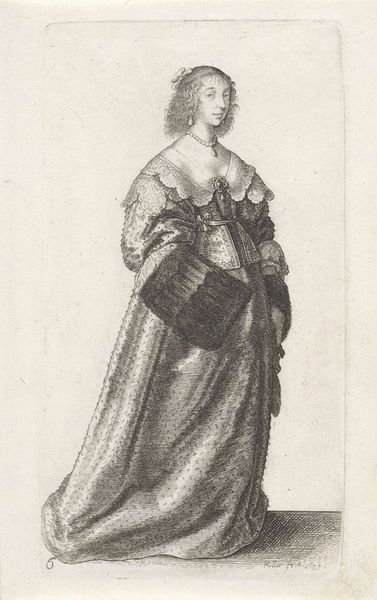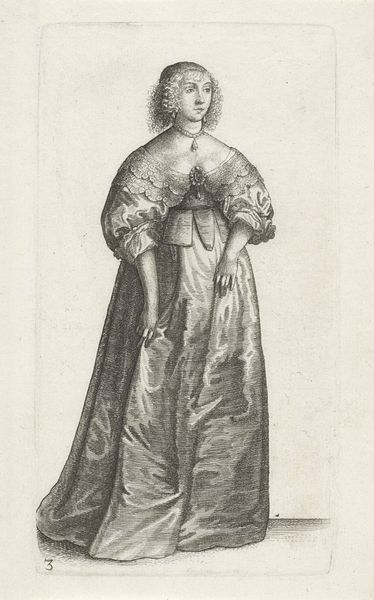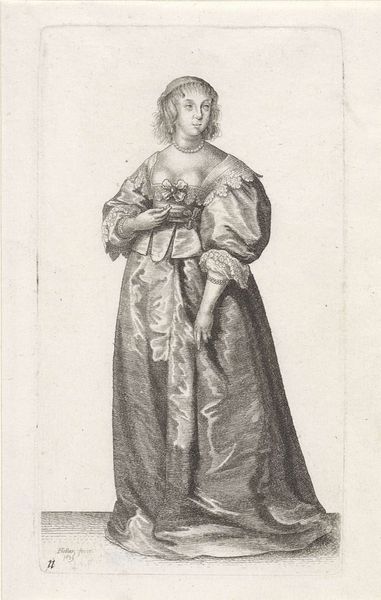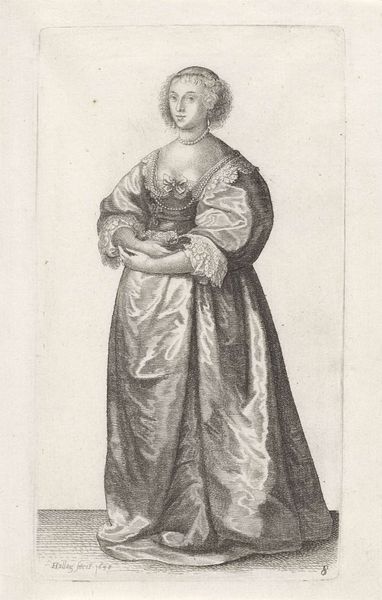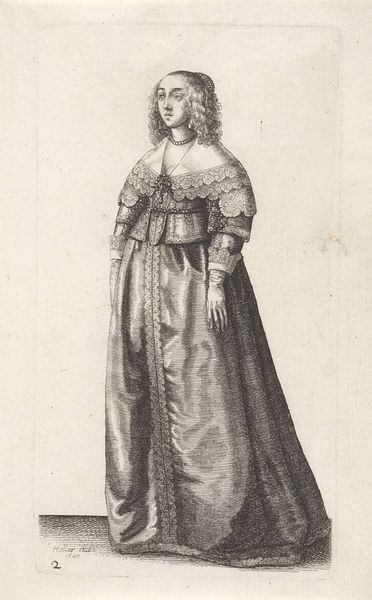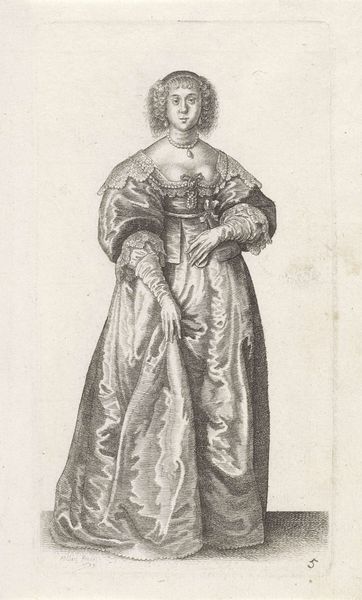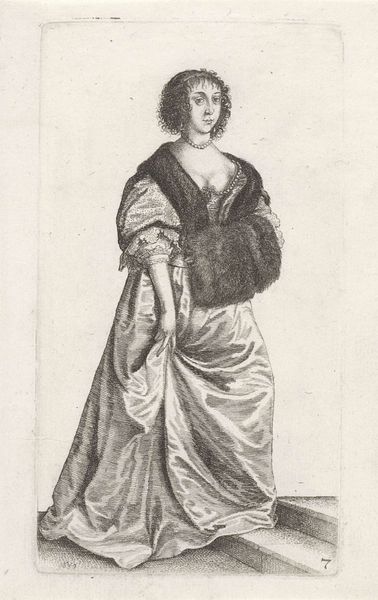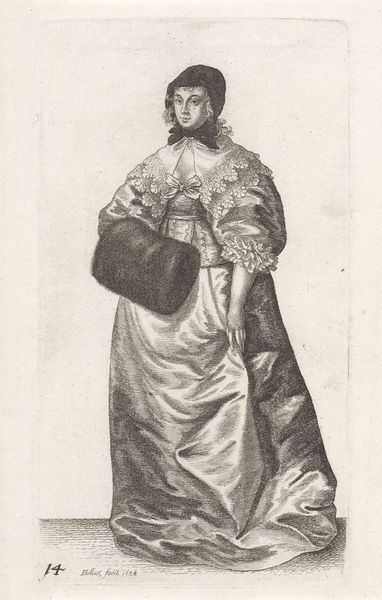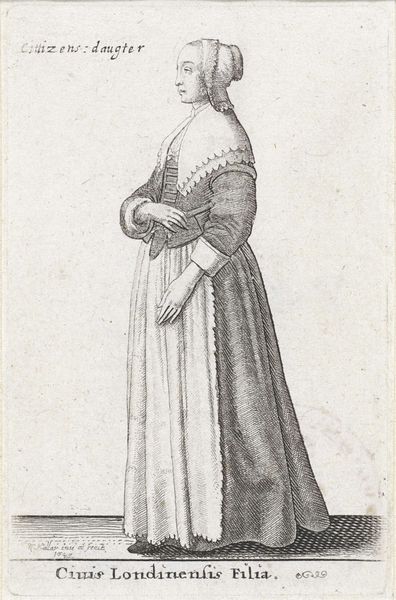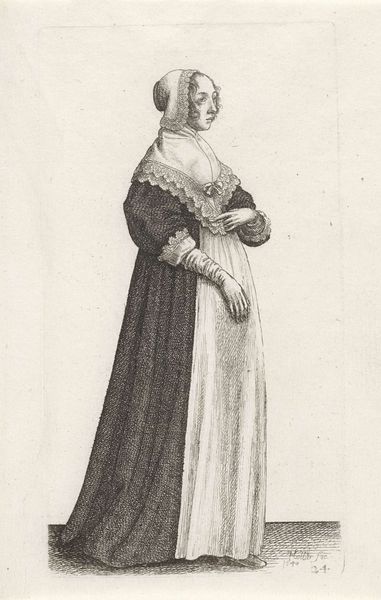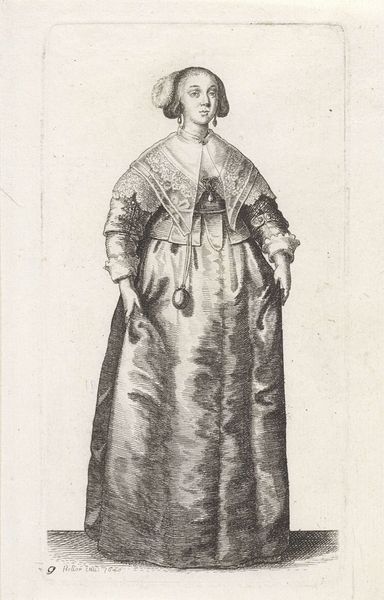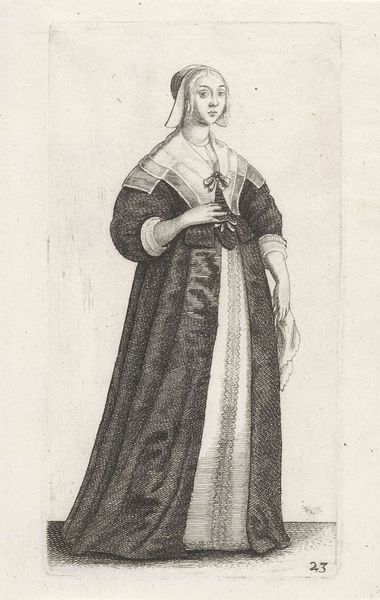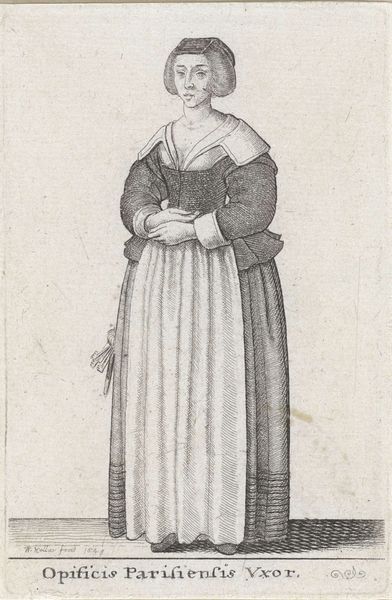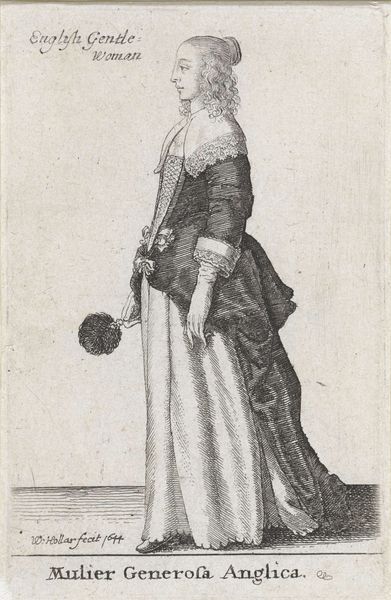
drawing, etching
#
portrait
#
pencil drawn
#
drawing
#
baroque
#
etching
#
pencil sketch
#
charcoal drawing
#
pencil drawing
#
portrait drawing
#
graphite
Dimensions: height 132 mm, width 72 mm
Copyright: Rijks Museum: Open Domain
Editor: Here we have Wenceslaus Hollar's etching, "Engelse vrouw van stand, met vouwwaaier," dating from around 1639 to 1640. The woman's attire is so detailed and voluminous. How can we contextualize this depiction within the social history of the era? Curator: It’s striking, isn’t it? Look at the ways her clothing dictates her posture and presence. How does this image, and its careful attention to detail, reinforce class and gender expectations in 17th-century England? Editor: It's clearly about status, but was there a pushback against these expectations? Curator: Precisely. Consider how sumptuary laws at the time attempted to regulate clothing based on social rank. To what extent might images like this be seen as upholding or perhaps subtly subverting these hierarchies? Is it pure documentation, or does it offer commentary? Editor: So the artist is in dialogue with societal rules just by choosing to depict this specific subject matter and details. Curator: Exactly. Hollar, as an artist working during a time of intense social stratification, uses her portrait as a lens through which we can examine gendered performance and economic power. We should consider her position as a woman in a patriarchal society, reflected even in the folds of her dress. How does that realization change our understanding of her gaze? Editor: It adds a layer of complexity; she isn't just a pretty picture, but embodies socio-political forces. Thanks! Curator: Indeed. Art allows us to unpack these visual codes and see how they relate to lived experience, even centuries later. There are so many layers in what might at first seem like a simple portrait.
Comments
No comments
Be the first to comment and join the conversation on the ultimate creative platform.
